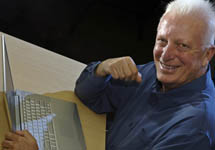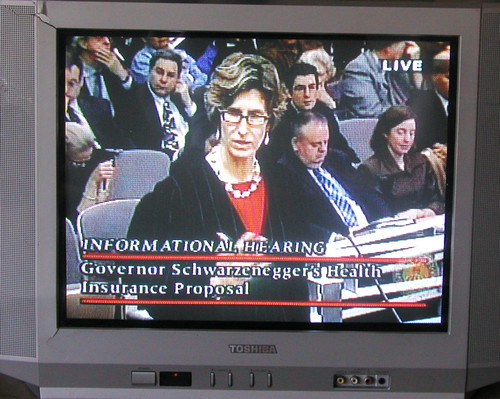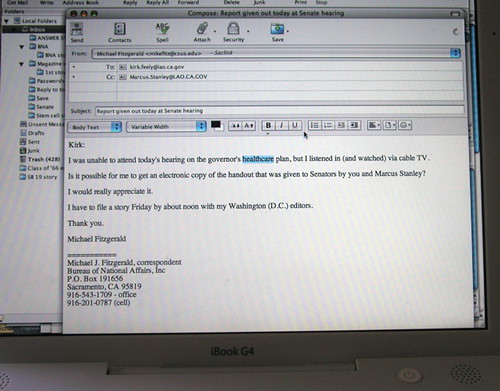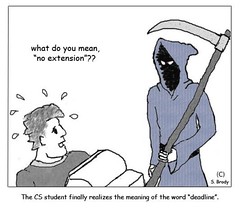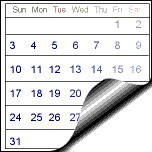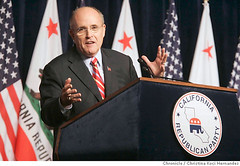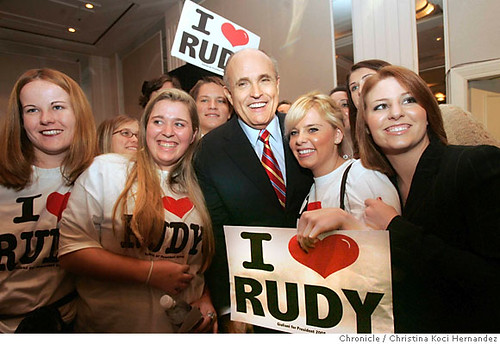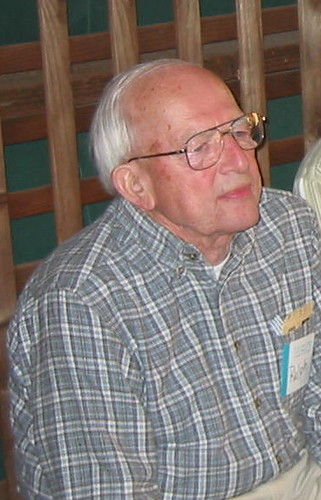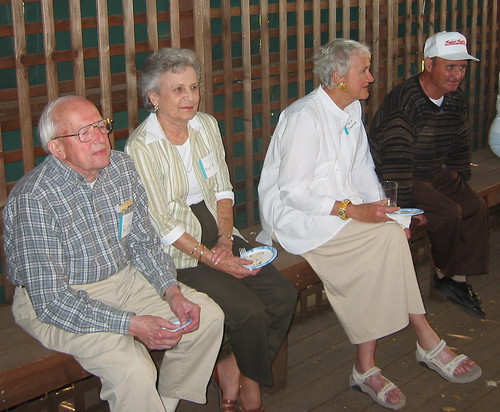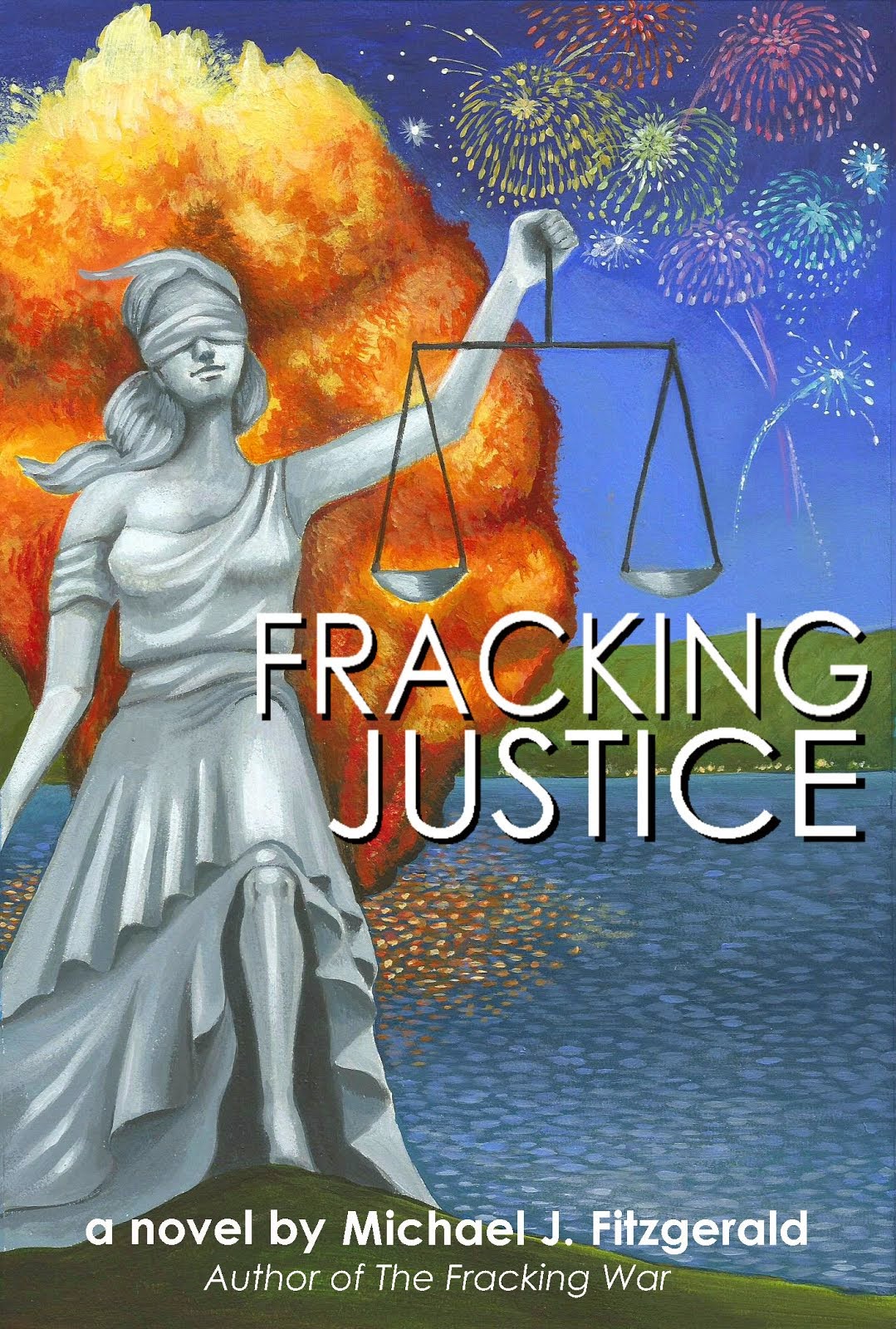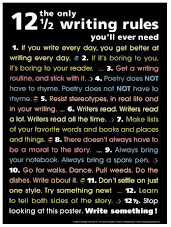PETALUMA, Calif. - I just received word today that Ralph Thompson, my editor from 1973-1977 has passed away.
He was the kind of newspaperman that is so rare today, well, I can't even
say how rare because I don't know anyone quite like him.
Ralph took me under his wing at the
Petaluma Argus-Courier after a group of us young reporters managed to drive the incumbent managing editor to quit. Not the proudest moment of my life, but it seemed like a good idea at the time.
When Ralph figured out what we trying to do (and I suppose it was
fairly obvious) he taught me what he called 'Ralph's Rule for Revolutions.'
WIN.Win, because if you start a revolution, and lose, it's all over.
I gained a lot of respect for Ralph during that time and then in the ensuing few years, working as his assistant, he taught me a lot about how to tell stories, how to deal with angry readers (and sources) and to keep the good of the public
always as our first goal.
He also taught me to be patient, though example. We had a publisher who made only bad decisions, and, by God, he stuck by them (His name was NOT Bush, by the way). The same publisher once refused to let me run a story about W.T. Grant stores going bankrupt, because, he said (I swear this is true,
I swear!) that the local store would cancel all of its advertising if I did so.
Ralph just nodded his head and gave me the same look people give when confronted with the mentally disabled. We ran the story a day late, and Ralph put it on the front page, pointing out to the publisher that every other news organization in the U.S. had published it the day before. Our readers didn't suffer, but Ralph used that case over and over to show the publisher that I had better news judgment than the publisher did. So did Bonzo the Chimp, as we pointed out when the publisher was out of earshot.
When I decided it was time for me to move on, Ralph did what good bosses to - he helped me find a good editor's job at another newspaper and was very supportive, even though it meant that he would suffer trying to find a replacement.
His boss (the mentally-disabled publisher) and other people in the chain of newspapers I worked for, were less kind and gave him hell for helping me.
He rather politely told them to go to hell.
He had an amazing amount of backbone, perhaps a byproduct of being a fighter pilot in WWII - and being shot down. He also was just a strong person. But he taught me when to bend and survive in a business that is famous for chewing people up.
It was sometimes a little awkward between us socially, because Ralph and his wife Hilda never had children and Hilda often would say in front of Ralph that I was like the son they never had.
Personally, I think they could have done a lot better and used to say so to cut through the emotional fog that Hilda laid down when she made the comment. Ralph would have made a great father, though.
When he retired 20 years ago, I surprised him and showed up at his retirement party. We had a great time, drank
waaaaay too much, told stories about the mentally-disabled publisher and swore that we would keep in touch.
We didn't, of course, but two years ago, I suddenly wondered about Ralph and tracked him down. We exchanged several letters and I even sent him a couple of videos I had made of my sailing adventures. His letters were full of good humor and optimism, even though I found out through reading his obituary that he had cancer.
Ralph Thompson lived a full life and as I write this, I'll wager he has been reunited with the love of his life, Hilda, and they are bashing balls all over Celestial Acres Golf Course, drinking those damned martinis they favored and laughing hysterically.
When they laughed, even if you didn't get the joke, it was impossible not to join in.
It's no joke that he's gone, but as long as I teach journalism, his lessons will continue.
Ralph, rest in peace. And if you can't rest, play another nine holes.




